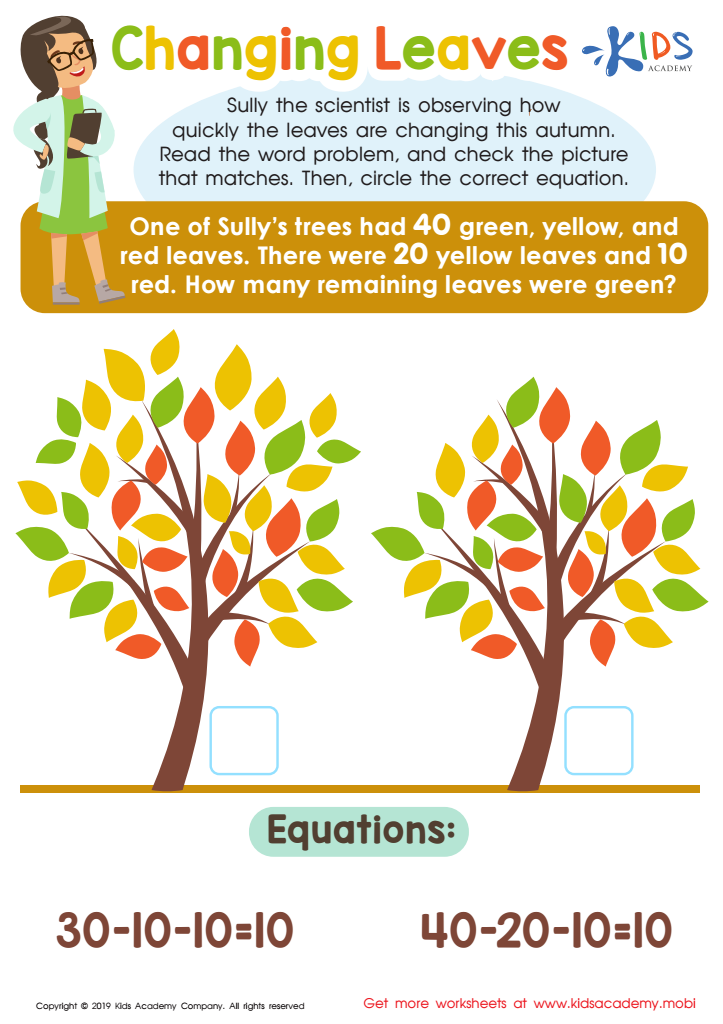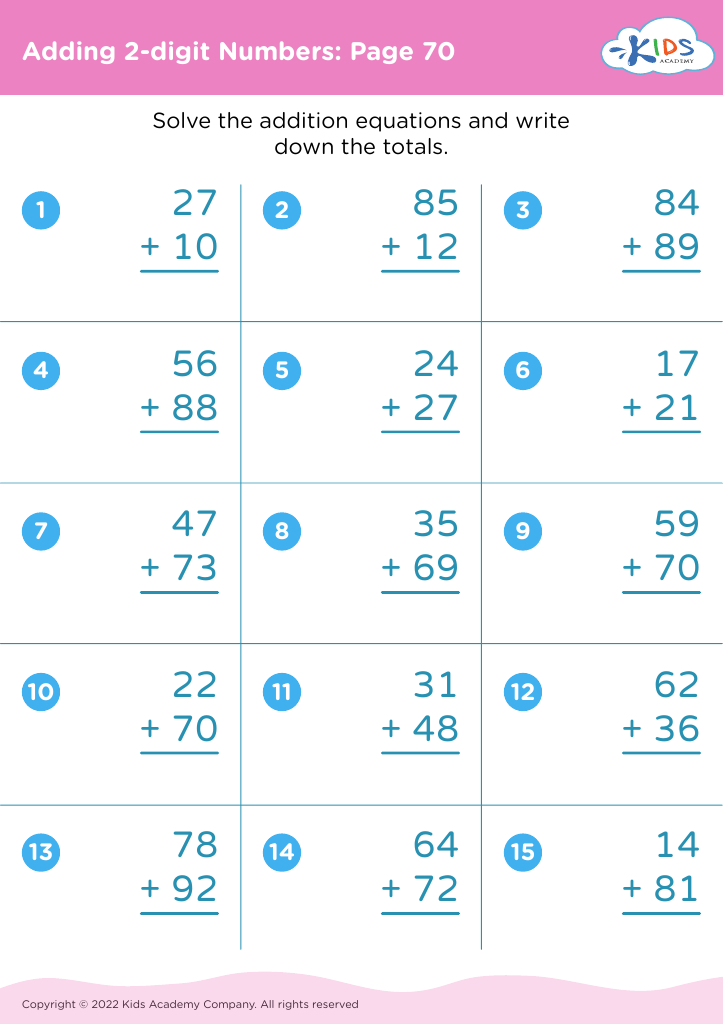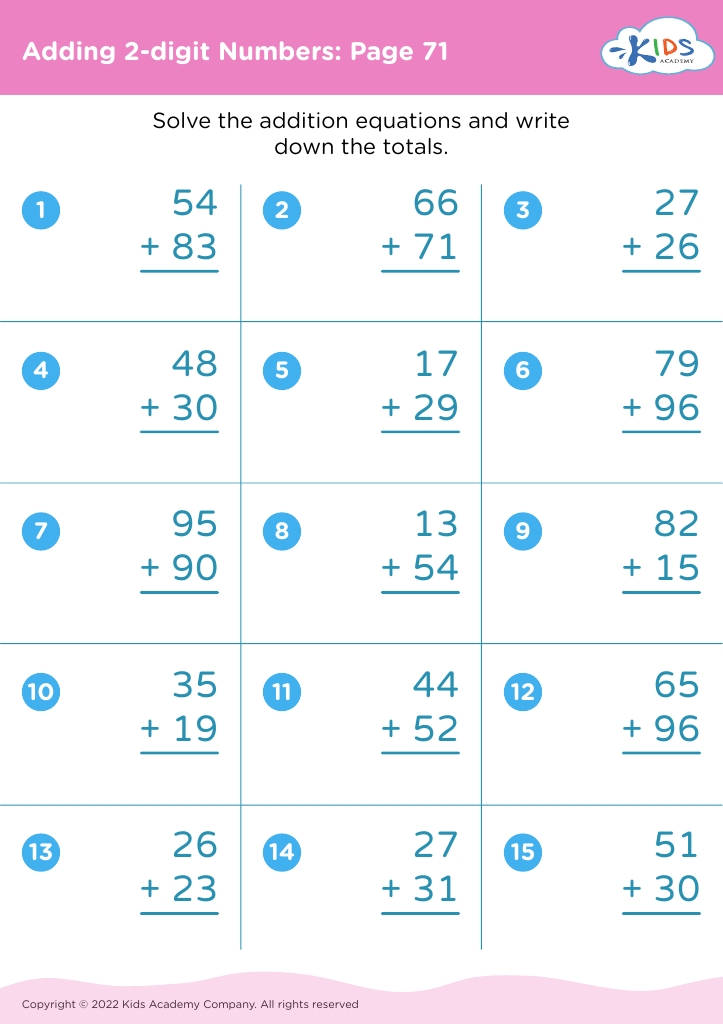Improving observation skills Addition & Subtraction Worksheets for Ages 4-7
3 filtered results
-
From - To
Enhance your child's observation skills with our engaging Addition and Subtraction Worksheets designed specifically for ages 4-7. These worksheets not only focus on basic math concepts but also encourage keen attention to details through interactive activities. By identifying patterns, solving problems, and recognizing differences, children develop essential analytical skills that are crucial for academic success. Perfect for at-home practice or classroom use, these worksheets will inspire young learners to tackle math challenges with confidence. Explore our diverse range of fun and educational exercises to boost your child's learning experience today!


Changing Leaves Worksheet
Improving observation skills in addition and subtraction for children aged 4-7 is crucial for their cognitive and academic development. During these formative years, children are building foundational skills that will influence their future learning in mathematics and other subjects. Observation skills allow children to recognize patterns, identify relationships, and draw conclusions based on their findings, which are essential for problem-solving.
When parents and teachers nurture these skills, they create a more engaging learning environment. This can be achieved through activities that encourage counting objects, comparing quantities, and understanding the concept of more and less. Children who improve their observation skills will not only become more proficient in performing basic math operations but will also enhance their critical thinking abilities.
Furthermore, strong observation skills can help build children's confidence in mathematics. When they can see and understand relationships between numbers, they are more likely to take risks and engage in higher-level mathematics as they advance. Parents and teachers, by focusing on observation skills, contribute to creating a solid mathematical foundation, eliminating math anxiety, and fostering a love for learning that extends beyond the classroom. Investing time in these skills now sets the stage for future academic success and lifelong skills.


 Assign to My Students
Assign to My Students

















